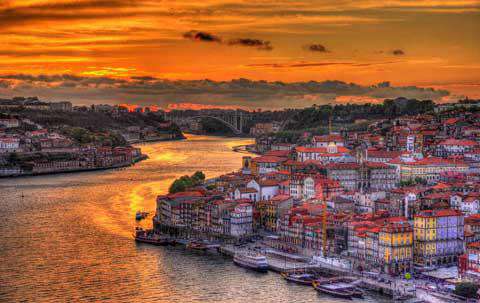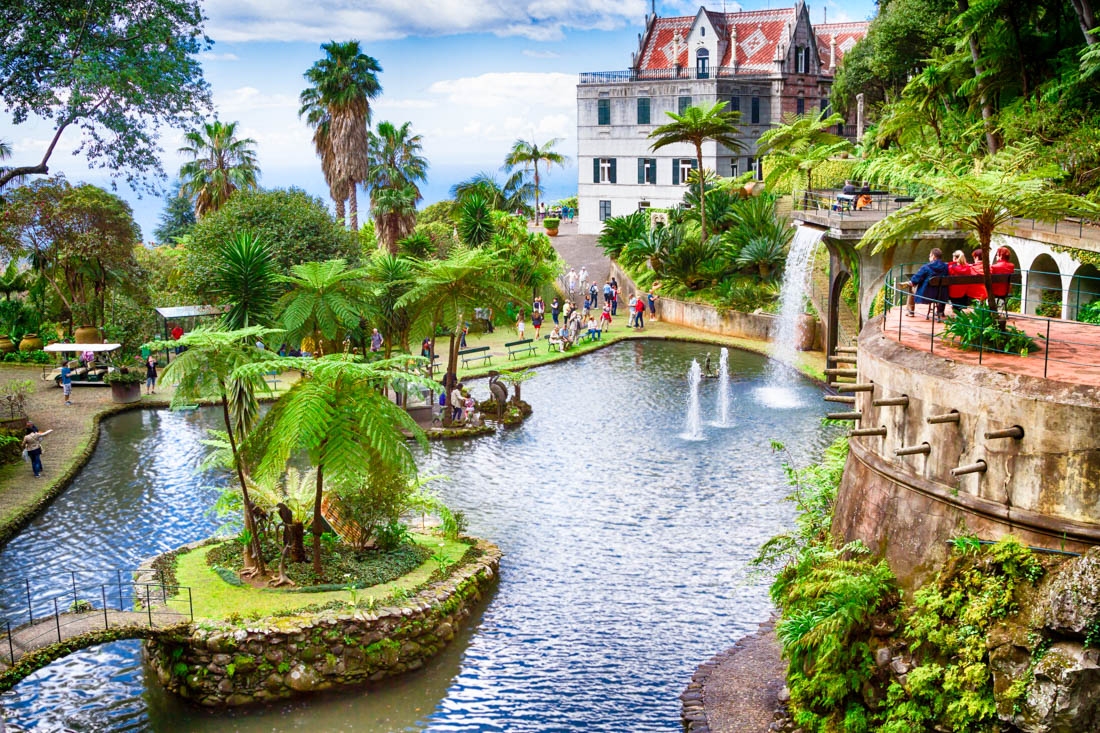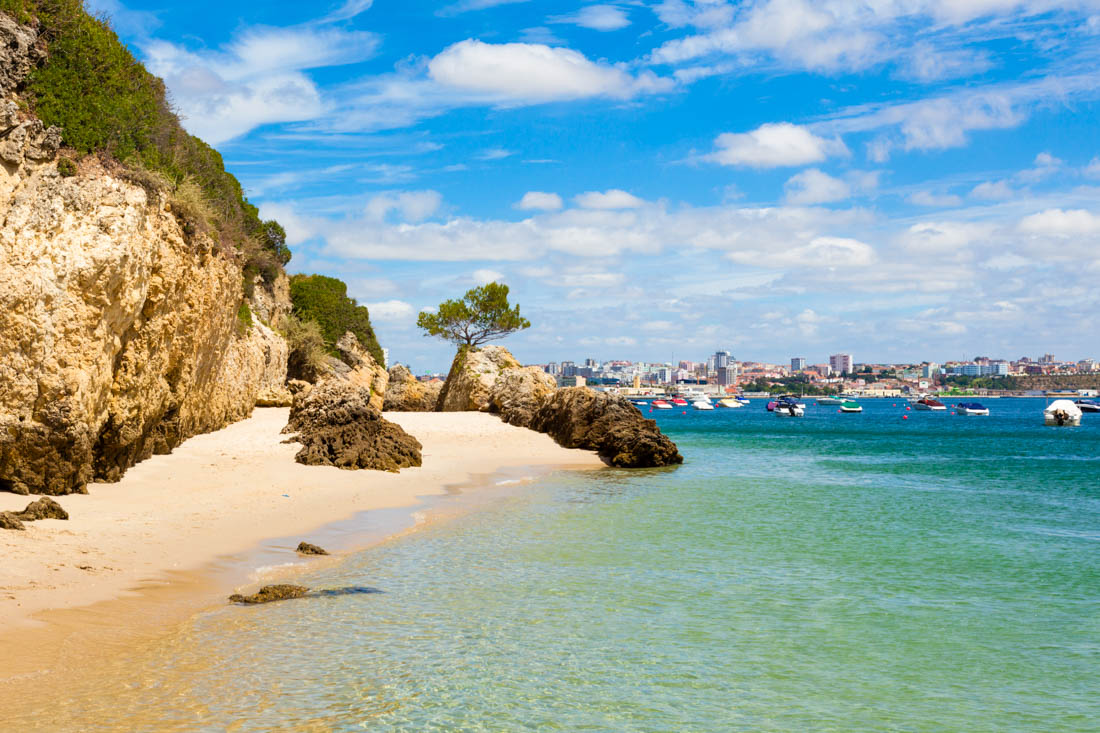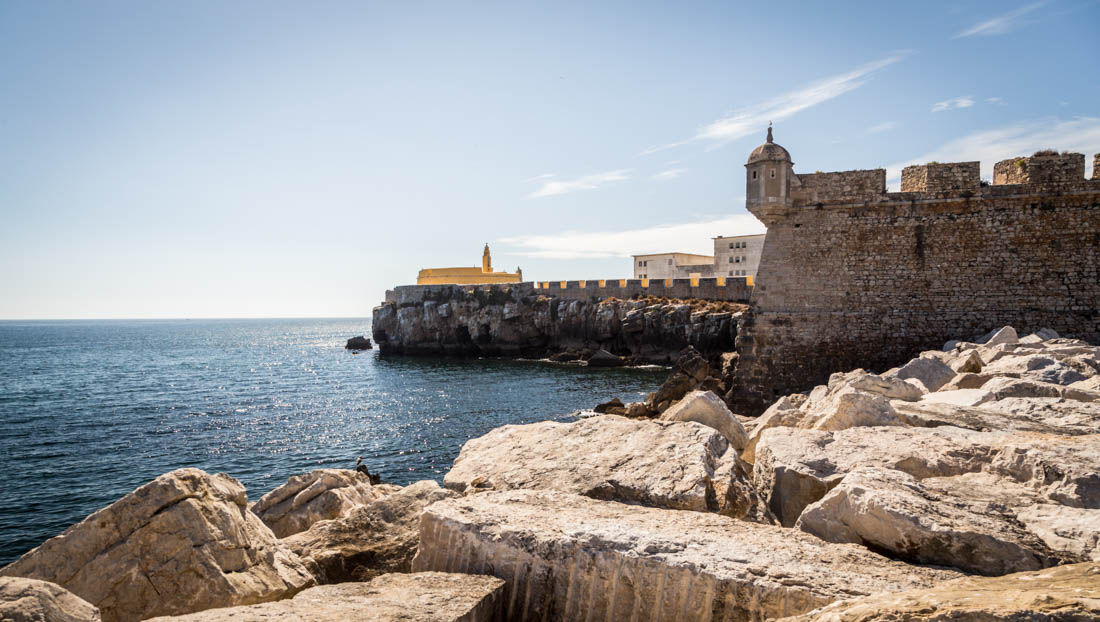When dining out, the average daily cost for food in Portugal is around $73 (€67) per person, with previous travelers spending from $30 to $163. Generally, breakfast and lunch cost less than dinner, but this will depend on the type of restaurant and what you order.
Typical meal prices in Portugal are as follows:
- Breakfast: $13 to $22
- Lunch: $11 to $36
- Dinner: $25 to $58
- Coffee: $7
- Fast Food or Street Food: $12
Caldo Verde: Caldo verde is a soup dish made from potatoes, kale, and chourico sausage. It's often served during celebrations such as weddings, but it's also sometimes offered as a main dish for dinner.
Bacalhau: This is a common Portuguese ingredient that is made from dried and salted codfish. It is common in many different popular dishes in Portugal and is most often used in Christmas dishes.
Pastel de Nata: This is a pastry like tart made from eggs. It's similar to small pies that are filled with custard. It's available in bakeries throughout the country and has even spread to Macau and Hong Kong where it is a popular dessert with dim sum.
Known worldwide for its outstanding cuisine, Portugal is a hugely popular food destination. The food alone draws many visitors. Some of the top cities for food enthusiasts are Lisbon, Porto, and Albufeira.
Lisbon
One of the best culinary spots in Portugal is Lisbon. There are many local restaurants as well as food tours and cooking classes that you can enjoy. Make sure you try the local favorites like bacalhau à brás, frango no churrasco, and pastel de nata. Given the beautiful climate, outdoor seating is also popular. Head into the less touristy neighborhoods to try some local dishes or hit up a seafood market. There are also many cafes that offer great breakfasts with fresh ingredients.
Porto
Make sure you don't miss the cuisine in Porto. The area's cuisine combines the ocean setting with the agriculture of the surrounding area, so you'll enjoy both seafood dishes as well as fresh meats and vegetables. The area is also famous for its Port wines and red wines. There are plenty of cellar tours as well was waterfront seafood restaurants to choose from.
Albufeira
Albufeira is not to be missed because of it's amazing cuisine. As the largest resort town in the Algarve, the city also has the widest selection of restaurants. There are traditional options that serve up classic dishes like grilled sardines, as well as international restaurants with traveler favorites. As expected, you'll find a lot of seafood, but you'll also find inland influences from local farms in the area.
Lagos
Lagos is well known for its food scene. The city offers some of the best food in the Algarve. The old town has plenty of restaurants that are both affordable and high quality. Seafood is the obvious choice, but you'll also find tapas, paellas, and local dishes such as cataplana (a seafood and chorizo stew). Most restaurants serve up a local fish of the day as well as prawns and other seafood items.
When visiting larger cities like Lisbon, Porto, or Albufeira, you can save some money by opting for lunch at nicer restaurants rather than dinner. Many restaurants in tourist districts or business centers feature lunch specials that are typically smaller and cheaper than their dinner offerings. With a little effort, you might be able to enjoy a complete multi-course gourmet meal at a budget-friendly price. Just plan for a lighter dinner afterwards.
If you're enjoying a stay in a sought-after resort area like Albufeira, Lagos, or Portimao, resorts typically offer various food options, so it's important to familiarize yourself with the details to understand the pricing structure. Some resorts provide full board, which means all meals are included, whereas others might offer half board, covering only two meals. Additionally, on-site restaurants might exist that could be included in your stay or not. Also, drinks may sometimes be included, but that's not always the case. Be sure to check with the resort ahead of time to clarify which meals and drinks may incur extra charges.
If you're looking at a week-long stay or longer in Albufeira, Lagos, or Lisbon, consider that families or groups might do well in an apartment or vacation rental with a kitchen. You can save by preparing your meals with economical groceries instead of dining out.
When you have children in tow, look for places that provide a kids menu. This can be a great way to cut costs, as those meals are often much cheaper. Since some restaurants don't list the kids' options, make sure to ask the waiter before you decide.
Many hotels offer complimentary breakfast, but some charge extra for this service. Prices and quality can vary based on the hotel. Being informed in advance can help you decide whether to indulge in a lavish hotel buffet or simply visit a nearby bakery or café that may offer cheaper options.
Carrying a water bottle is a smart choice instead of buying drinks. It's also a way to support the environment.
When planning a tour, it's important to clarify in advance which meals are part of the package. You may be responsible for paying for some meals yourself, which could increase your overall expenses.
If you're looking to experience the culinary culture in Portugal, taking a food tour or cooking class is a terrific way to do it. After all, cuisine is one of the reasons why so many people visit. Some of the best food-related activities here include:
- Portuguese Cooking Class in Lisbon for $85 details
- Traditional Cooking Class, Farm Tour & Lunch in the Douro Valley for $103 details
- Porto Market Tour & Cooking Class - Half Day for $208 details
- Portuguese 'Petiscos' Cooking Class for $86 details
Typical food prices in Portugal, as reported by previous travelers, are outlined below. These costs offer a snapshot of what meals might cost in the city. Your personal expenses will vary depending on the type of dining experiences you choose and the dishes you order.
 Porto
Porto




 Budget Your Trip is all about finding out how much everything costs so that you can travel cheaper and longer. Created by avid travelers Laurie and Bryan, our goal is to help you plan your next trip on the right budget. With average daily travel costs that are calculated from the budgets of real travelers, plus an analysis of hotel and tour prices, you can find out how much money you need to plan your next adventure. We also have plenty of travel advice, accommodation reviews, and activity suggestions.
Budget Your Trip is all about finding out how much everything costs so that you can travel cheaper and longer. Created by avid travelers Laurie and Bryan, our goal is to help you plan your next trip on the right budget. With average daily travel costs that are calculated from the budgets of real travelers, plus an analysis of hotel and tour prices, you can find out how much money you need to plan your next adventure. We also have plenty of travel advice, accommodation reviews, and activity suggestions.
We're backpackers and we loved the cities like Lisbon and Porto, but the coastal areas felt like they were more popular with families on vacation.